ANIMALS
Fascinating Ferrets: 25 Facts About These Mischievous Creatures
Published
6 months agoon

Shutterstock
Ferrets are fascinating little creatures that have captured the hearts of pet lovers around the world. Known for their playful antics and curious nature, ferrets have a long and storied history with humans. From their musky scent to their unique communication styles, there’s more to these animals than meets the eye. Whether you’re a ferret owner or just curious about these intriguing pets, there’s plenty to learn about their behaviors and quirks. Get ready to discover 25 fascinating facts that will make you appreciate ferrets even more.
Domesticated for 2,500 Years
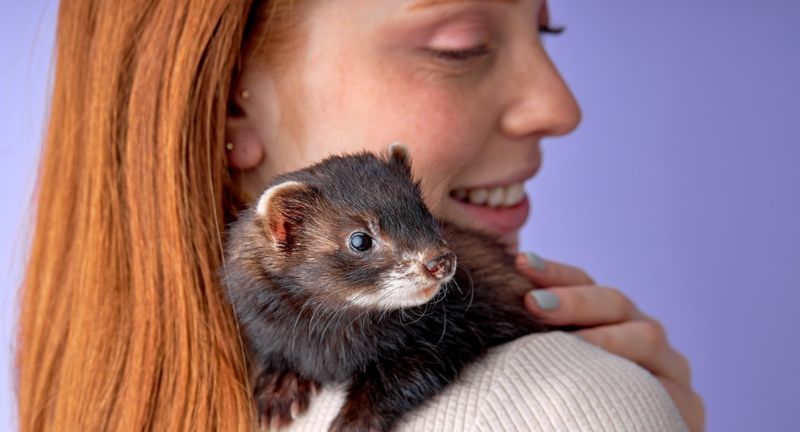
Shutterstock
Ferrets have a long history of living alongside humans, dating back over 2,500 years. Initially, they were domesticated to help hunt small game, particularly rabbits. Their small size and agility made them perfect companions for this task, and they became valuable assets for ancient civilizations. Today, ferrets are beloved pets, though they no longer need to hunt for survival.
Ferret Comes From the Latin Word for ‘Little Thief’
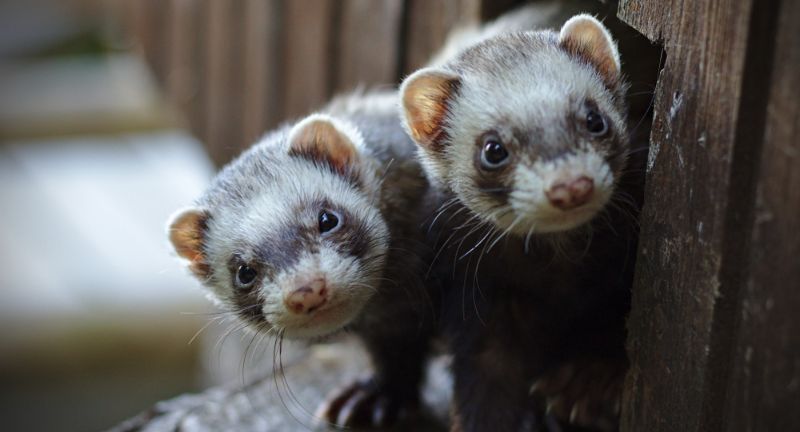
Shutterstock
The name “ferret” is derived from the Latin word *furonem*, which translates to “little thief.” This name is fitting due to the ferret’s natural inclination to steal and hide small objects. Ferret owners often find toys, keys, and other items stashed away in secret corners, thanks to their playful nature. This mischievous behavior is part of what makes them so endearing to those who care for them.
Not Rodents
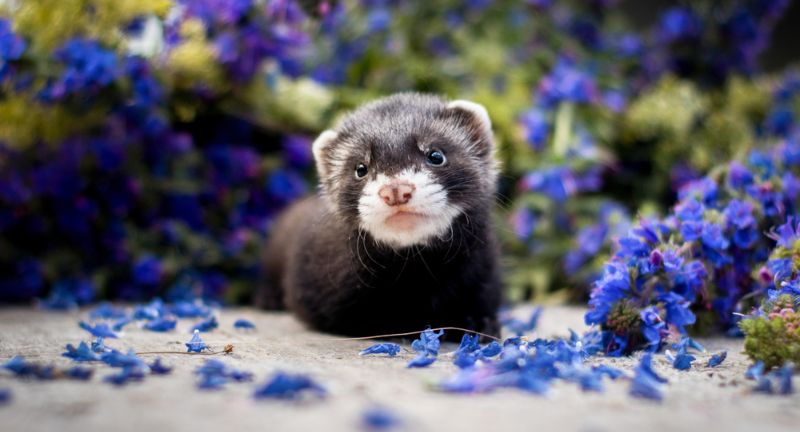
Shutterstock
Despite their small size, ferrets are not rodents. They belong to the Mustelidae family, which also includes animals like weasels, otters, and badgers. Their slender, elongated bodies are a hallmark of this family, designed for agility and stealth. This distinction is important because their dietary and care needs differ significantly from those of rodents.
They Can Squeeze Into Tiny Spaces

Shutterstock
One of the most remarkable traits of ferrets is their incredible flexibility. Thanks to their unique skeletal structure, they can squeeze into spaces as small as their head, which makes them excellent at exploring and sometimes getting into trouble. Owners must be mindful of this ability, ensuring their homes are “ferret-proofed” to prevent accidents. This characteristic also explains why they were once used for hunting animals in burrows.
They Love to Sleep

Shutterstock
Ferrets are known for their impressive ability to sleep for long stretches of time. On average, they sleep between 18 and 20 hours a day, often in deep, undisturbed slumber. When awake, however, they are playful, energetic, and ready for fun, making up for their long rest periods. This sleep pattern is perfectly natural for ferrets and helps them conserve energy for their active playtime.
They Can Dance

Shutterstock
One of the most delightful behaviors ferrets exhibit is the “weasel war dance.” This playful dance involves bouncing, twisting, and flipping around in excitement, often accompanied by a joyful noise called “dooking.” While it may look aggressive, it’s actually a sign of happiness and enthusiasm. Ferrets will perform this dance during playtime, especially when they’re feeling particularly energized or excited.
Ferrets Communicate Through Sound

Shutterstock
Ferrets have a variety of sounds they use to communicate with their human companions and other ferrets. The most common is “dooking,” a soft, chuckling sound that indicates happiness or excitement. When angry or frightened, ferrets will hiss, which is their way of warning others to stay away. These vocalizations are key to understanding their moods and emotions.
Carnivores by Nature
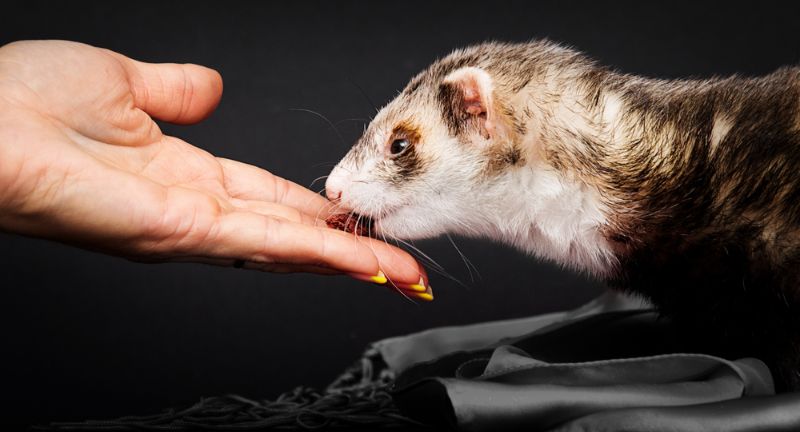
Shutterstock
Ferrets are obligate carnivores, meaning they require a diet that is rich in meat to thrive. Their bodies are not equipped to handle plant-based foods, and they cannot process carbohydrates efficiently. A well-balanced diet for a ferret includes high-protein foods, such as raw or cooked meats, along with specialized ferret kibble. Feeding them a proper diet is crucial for their overall health and longevity.
Color Variations

Shutterstock
Ferrets come in a wide variety of colors and patterns, making them even more unique. The most common ferret color is sable, but they can also be found in shades like albino, cinnamon, chocolate, and even panda. Each color variation adds to their individual charm, making no two ferrets look exactly alike. This diversity in appearance is one of the reasons they are such popular pets.
They Have a Musky Scent
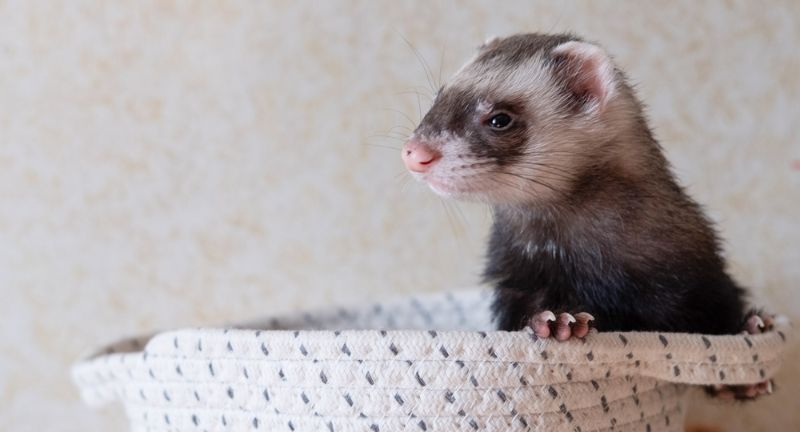
Shutterstock
Ferrets are known for their musky scent, which comes from their skin glands. While some people find this smell off-putting, others describe it as part of their charm. The scent is more prominent in unneutered males, but even neutered ferrets retain a mild musk. Regular bathing isn’t necessary, as it can strip their skin of essential oils, but cleaning their bedding often can help reduce the odor.
Ferret Proofing is a Must
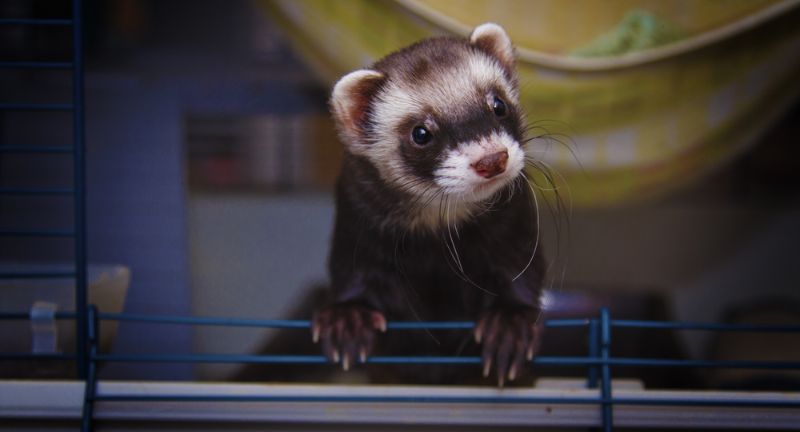
Shutterstock
Ferrets are naturally curious animals, which means they can get into a lot of mischief. This is why ferret-proofing your home is an absolute must for their safety. Small spaces, wires, and open drawers all pose potential hazards, and ferrets will explore them if given the chance. Ensuring your environment is safe and secure will prevent accidents and give your ferret a safer space to roam freely.
They Shed Twice a Year
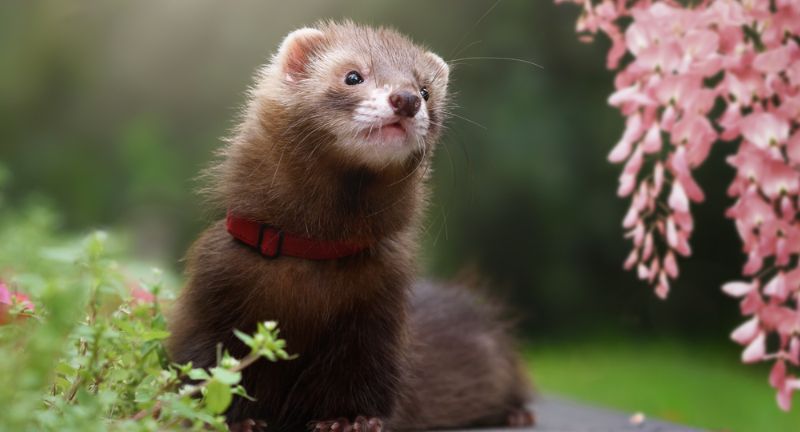
Shutterstock
Ferrets shed their fur twice a year as part of their natural cycle, typically in the spring and fall. During these periods, they may lose quite a bit of fur as they transition to either a thicker winter coat or a lighter summer one. Regular grooming during shedding season helps to manage the excess fur and keep their coats healthy. Brushing also helps to bond with your ferret while reducing shedding around the house.
Their Vision Isn’t Great

Shutterstock
Ferrets do not rely heavily on their vision, as it is not particularly sharp. They are nearsighted and can see movement well, but objects at a distance can appear blurry. Instead, ferrets depend more on their sense of smell and hearing to navigate their surroundings. This means that even if your ferret’s vision is lacking, they will still be able to explore and find their way around easily.
They’re Social Creatures

Shutterstock
Ferrets are highly social animals that thrive on interaction with both humans and other ferrets. It’s common for ferret owners to keep more than one, as they enjoy playing and snuggling with a companion. If left alone for too long, they can become lonely or even depressed. Providing plenty of socialization and companionship ensures your ferret stays happy and engaged.
They’re Prone to Certain Diseases
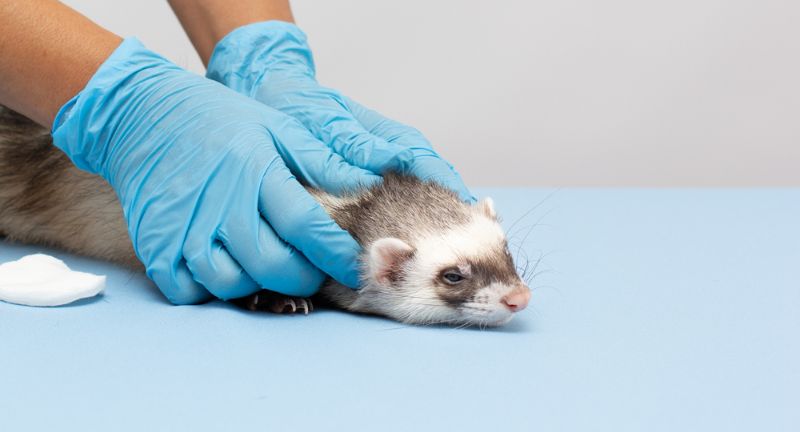
Shutterstock
Ferrets are prone to several health issues, including adrenal gland disease, insulinomas, and dental problems. Regular vet checkups are essential to detect any early signs of illness and to keep them in good health. Vaccinations, such as for distemper, are also critical for preventing serious diseases. With proper medical care, many of these conditions can be managed, ensuring your ferret lives a long and healthy life.
Ferret Lifespan
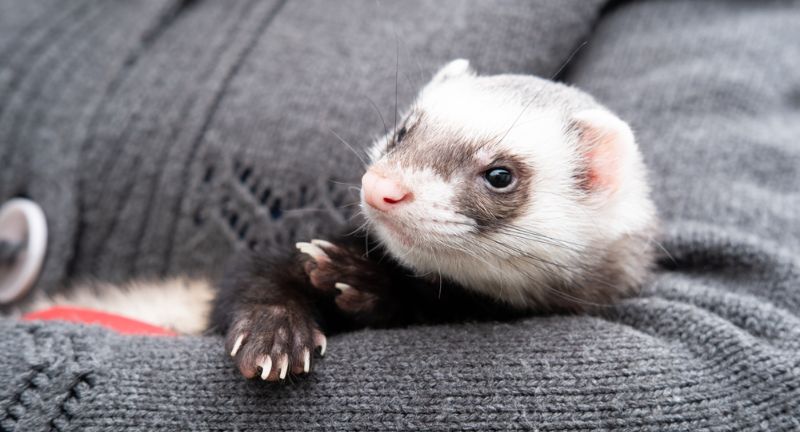
Shutterstock
On average, ferrets live between 6 to 10 years, although some can live even longer with excellent care. The key to a long and happy ferret life is proper nutrition, regular exercise, and timely veterinary care. Many ferret owners find that their pets remain playful and energetic even as they age. Understanding a ferret’s needs and providing a supportive environment ensures they reach their full life potential.
They Can Be Litter Trained

Shutterstock
Just like cats, ferrets can be trained to use a litter box, making them relatively easy to manage indoors. Training might take a little patience, as ferrets are not always as consistent as cats in using their litter. However, with positive reinforcement and a proper setup, most ferrets learn to use their litter box fairly reliably. A clean and accessible litter box is essential to maintaining hygiene and keeping your ferret happy.
Ferrets Were Once Illegal in Some States

Shutterstock
Although ferrets are legal in most places now, they were once banned in certain states like California and New York City. These laws were mainly due to concerns about ferrets transmitting diseases or becoming a threat to local wildlife. While the bans have been lifted in many areas, some places still have restrictions on owning ferrets. Prospective owners should check local regulations to ensure they can legally keep ferrets as pets.
They’re Silent Hunters
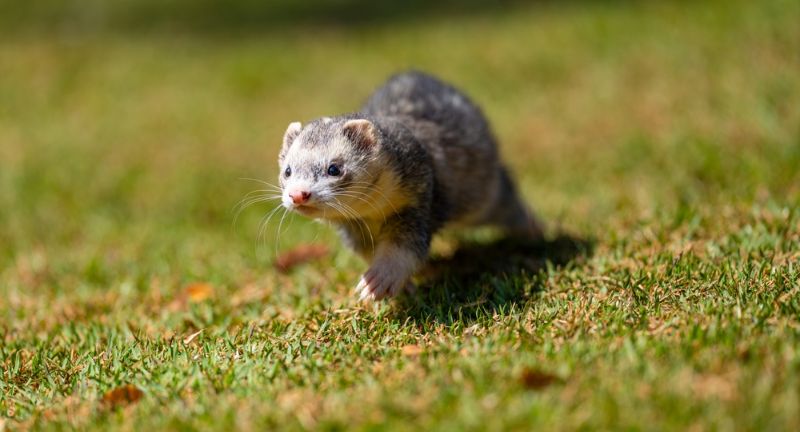
Shutterstock
Ferrets come from a long line of skilled and silent hunters, particularly adept at tracking small prey like rabbits. Their slender bodies allow them to move through burrows and tunnels with ease, a trait that has been passed down through generations. In the wild, ferrets’ ancestors relied on their stealth and speed to catch their prey. Though domesticated ferrets no longer hunt, they still exhibit these natural instincts through playful behaviors.
Ferret Racing Is a Thing

Shutterstock
In the UK, ferret racing has become a popular charity event that’s both fun and quirky. The races typically involve ferrets running through long tubes, with spectators cheering them on to the finish line. The unpredictability of the ferrets’ speed and direction makes the races highly entertaining. While it may seem unusual, ferret racing is a light-hearted tradition enjoyed by both participants and onlookers alike.
They Have a High Metabolism
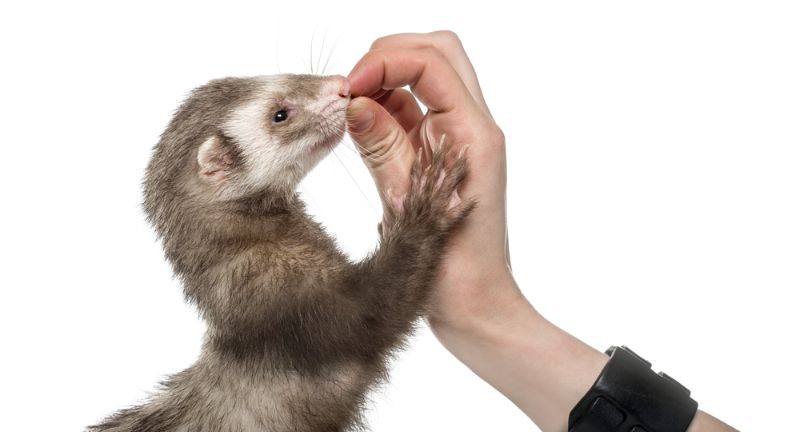
Shutterstock
Ferrets have an incredibly fast metabolism, meaning they need to eat frequently throughout the day. Typically, ferrets will eat every 3-4 hours, as their bodies digest food quickly. A diet rich in protein and fat is essential to maintaining their energy levels. Without proper nourishment, ferrets can lose weight rapidly, so owners must ensure their pets have access to food at regular intervals.
The Ferret’s Scientific Name
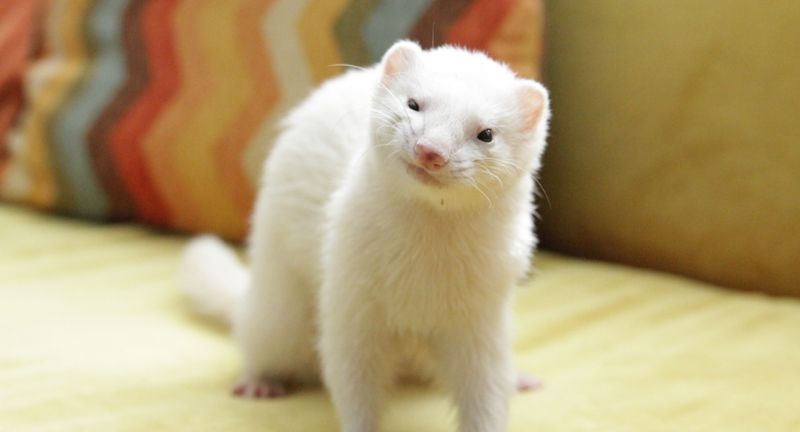
Shutterstock
The scientific name for ferrets is *Mustela putorius furo*, which translates to “stinky little thief.” This amusing name comes from two of their most well-known characteristics: their musky odor and their tendency to steal small objects. While the name might sound unflattering, ferret enthusiasts embrace it as part of their unique charm. Despite their mischievous nature, ferrets remain lovable pets to those who appreciate their quirks.
Ferrets Can Get the Flu

Shutterstock
Ferrets are one of the few animals that can contract and transmit human influenza. This means if you have the flu, there’s a chance your ferret could catch it from you. It’s important to keep an eye on your ferret’s health if you’re feeling under the weather. Symptoms like lethargy, coughing, or sneezing in your ferret should prompt a visit to the vet to ensure they’re not suffering from the flu.
They Have Been Used in Science

Shutterstock
Ferrets have been used in scientific research, particularly for studying diseases like the flu. Their susceptibility to the same viruses that affect humans makes them ideal candidates for research into treatments and vaccines. Ferrets also share anatomical similarities with humans in certain areas, further aiding in medical studies. While some may find this surprising, ferrets have contributed significantly to advancements in health and medicine.
They Were Once Used for Cable Wiring
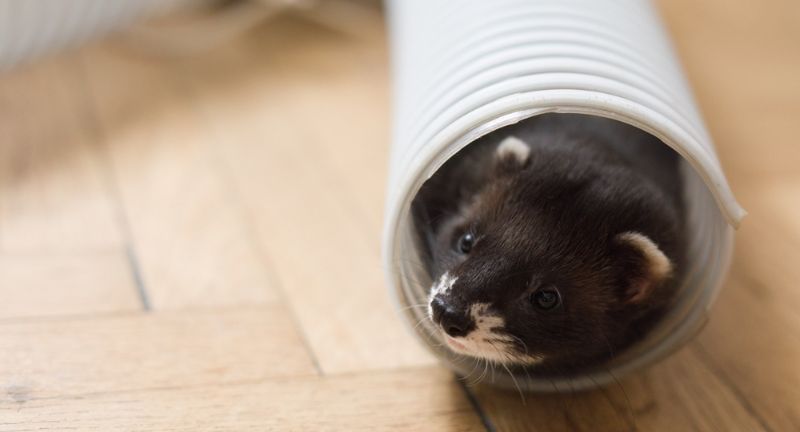
Shutterstock
In the past, ferrets were employed to help run wires through narrow or hard-to-reach spaces. Their agility and ability to fit into tight spaces made them perfect for jobs that human hands couldn’t reach. They were even used to run cables for events like weddings or through intricate buildings such as Buckingham Palace. Though technology has replaced ferrets in this role, it remains a fascinating part of their history.
Conclusion

Shutterstock
Ferrets are truly remarkable animals with a rich history and many unique traits. Whether you’re charmed by their playful personalities, intrigued by their hunting abilities, or fascinated by their quirky behaviors, there’s no denying that ferrets make for incredible companions. Their blend of intelligence, curiosity, and affection brings endless joy to those who care for them. Understanding more about their habits and nature helps us appreciate these furry friends even more. If you’re thinking about adding a ferret to your family, or simply learning more, they are sure to bring a little excitement and love into your life.
More Amazing Animals+
-


27 Odd Animals That We Actually Think Are Really Cute
-


What Makes Macaws So Interesting
-


Goats Ushered Across a Road to Aid in California Fire…
-


The Adorable World of Hedgehogs: 25 Things You Didn’t Know!
-


More – Orphaned bear cubs playing in tree and post-rescue…
-
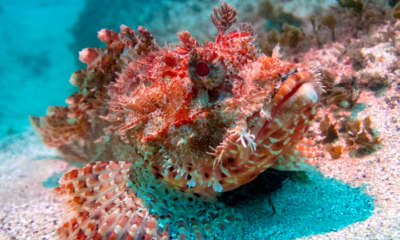

25 Deadliest Sea Creatures In The World
-
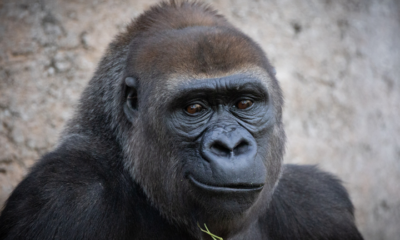

30 Smartest Animals In The World
-


Baby otter hugs and snuggles mom
-
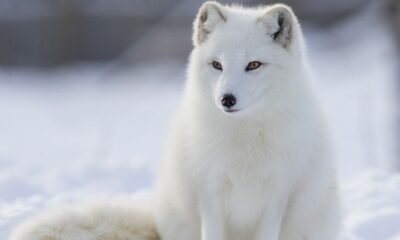

30 Most Beautiful Animals on the Planet
-
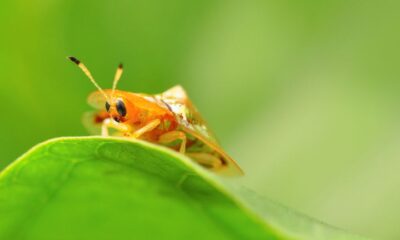

28 Animals That Use Camouflage For Protection
-


20 Random Facts About Lions That May Surprise You
-


Triple otter on the rocks
